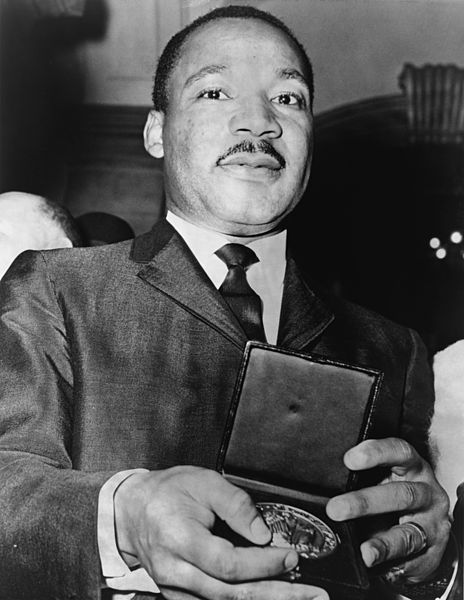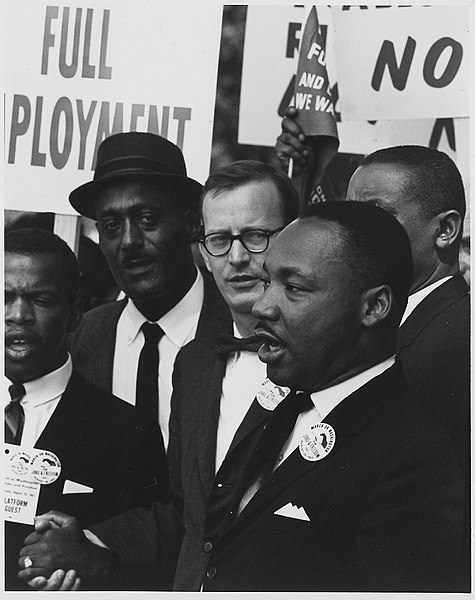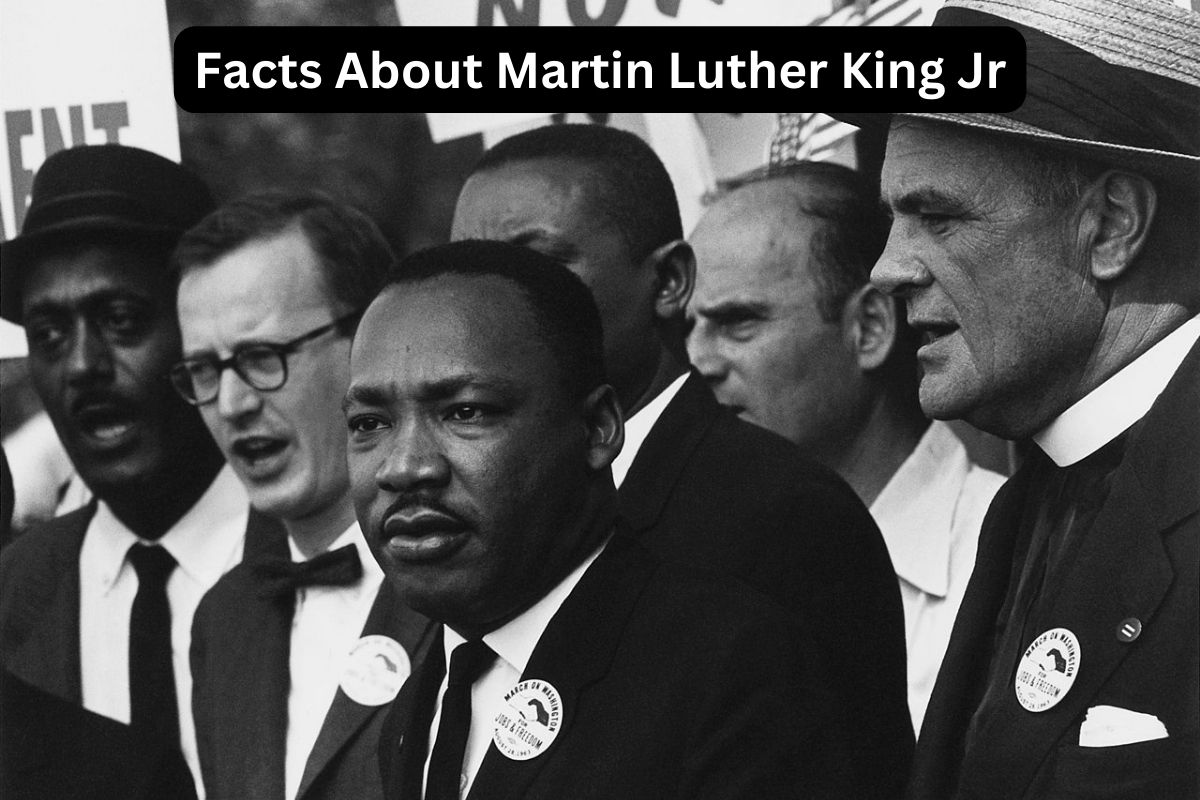Martin Luther King Jr. was a renowned leader, preacher, and activist who became one of the most influential figures in the American civil rights movement. Born on January 15, 1929, in Atlanta, Georgia, King dedicated his life to fighting racial inequality and advocating for justice through nonviolent means.
His tireless efforts, powerful speeches, and unwavering commitment to nonviolence made him a transformative force in the struggle for civil rights. King’s legacy continues to inspire and his teachings on equality, justice, and nonviolence resonate with people around the world.
Martin Luther King Jr Facts
1. Martin Luther King Jr. was born on January 15, 1929, in Atlanta, Georgia
Martin Luther King Jr. was born on January 15, 1929, in Atlanta, Georgia, United States. He was born into a middle-class African American family.
Also Read: Accomplishments of Martin Luther King Jr
His father, Reverend Martin Luther King Sr., was a prominent pastor at Ebenezer Baptist Church, and his mother, Alberta Williams King, was a skilled musician and choir director.

2. He was named Michael King Jr. at birth, but his father later changed both their names to Martin Luther King
At birth, Martin Luther King Jr. was named Michael King Jr. after his father, Michael King Sr.
However, when King Sr. traveled to Germany in 1934 to attend the Fifth Baptist World Alliance Congress in Berlin, he became inspired by the life and teachings of the German Protestant Reformer, Martin Luther.
Also Read: Martin Luther King Jr Timeline
This experience led him to change his own name and that of his son to Martin Luther King Sr. and Martin Luther King Jr., respectively, in honor of Martin Luther.
3. King was a prominent leader in the American civil rights movement
Martin Luther King Jr. emerged as a prominent leader in the American civil rights movement during the 1950s and 1960s. His leadership and activism played a pivotal role in advancing the cause of racial equality and justice in the United States.
4. King is best known for his role in the Montgomery Bus Boycott in 1955
King’s leadership and activism came to the forefront during the Montgomery Bus Boycott in 1955. The boycott was sparked by the arrest of Rosa Parks, an African American woman who refused to give up her seat on a segregated bus to a white passenger.
King, who was chosen as the spokesperson for the boycott, played a crucial role in organizing and leading the nonviolent protest. The boycott lasted for 381 days and resulted in a Supreme Court ruling that declared racial segregation on public buses unconstitutional.
5. He was a skilled orator and delivered his famous “I Have a Dream” speech during the 1963 March on Washington for Jobs and Freedom
One of Martin Luther King Jr.’s most famous and influential moments came on August 28, 1963, during the March on Washington for Jobs and Freedom.
Standing in front of the Lincoln Memorial, King delivered his iconic “I Have a Dream” speech to a crowd of over 250,000 people.
In his speech, he eloquently articulated his vision of a future where racial equality would prevail, where individuals would not be judged by the color of their skin but by the content of their character. The speech is often hailed as one of the greatest speeches in American history.

6. King advocated for nonviolent civil disobedience as a means to achieve social change
King’s commitment to nonviolent resistance was deeply influenced by his study of Mahatma Gandhi’s philosophy. He believed in the power of love, peaceful protests, and civil disobedience to bring about social change.
King organized and participated in numerous nonviolent protests and acts of civil disobedience throughout his life, including sit-ins, marches, and boycotts.
He emphasized the importance of remaining nonviolent even in the face of violence and hatred, believing that it would ultimately lead to the triumph of justice and equality.
7. In 1964, at the age of 35, King became the youngest person to receive the Nobel Peace Prize
In recognition of his tireless efforts in advancing civil rights and advocating for racial equality, Martin Luther King Jr. was awarded the Nobel Peace Prize in 1964. At the age of 35, he became the youngest recipient of the prestigious award at that time.
The Nobel Committee acknowledged King’s nonviolent approach to combating racial segregation and discrimination, and his ability to inspire and mobilize masses of people towards positive social change.
The prize further elevated King’s profile and the civil rights movement, bringing international attention to the struggle for racial justice in the United States.
8. He played a pivotal role in the passage of the Civil Rights Act of 1964 and the Voting Rights Act of 1965
Martin Luther King Jr. played a pivotal role in the passage of significant civil rights legislation. The Civil Rights Act of 1964, signed into law by President Lyndon B. Johnson, aimed to end racial segregation in public facilities and prohibit discrimination based on race, color, religion, sex, or national origin.
King’s leadership and advocacy, along with the collective efforts of civil rights activists and organizations, helped bring about the passage of this landmark legislation.
The Voting Rights Act of 1965 was another significant achievement in the civil rights movement, and King played a crucial role in its passage. This act aimed to overcome barriers that prevented African Americans from exercising their right to vote, such as literacy tests and poll taxes.
King and other civil rights activists organized voter registration campaigns and protests to draw attention to voter suppression and demand equal voting rights. The Voting Rights Act of 1965 was instrumental in dismantling discriminatory practices and ensuring equal access to the ballot box.

9. King also championed economic justice and equality
In addition to his advocacy for racial equality, Martin Luther King Jr. also championed economic justice and equality. He believed that eradicating poverty and addressing economic disparities were essential components of achieving true equality.
In 1968, he initiated the Poor People’s Campaign, which sought to address issues such as unemployment, fair wages, and affordable housing. The campaign aimed to unite people from diverse backgrounds to advocate for economic reforms and draw attention to the plight of the poor in the United States.
10. Despite his commitment to nonviolence, King faced significant opposition and was the target of violence and harassment throughout his life
Martin Luther King Jr. faced significant opposition and endured numerous challenges throughout his life. His nonviolent activism and calls for racial equality were met with resistance, violence, and threats. King was arrested multiple times during protests and demonstrations, enduring physical attacks and threats to his safety.
In 1956, his house in Montgomery, Alabama, was bombed. Despite these obstacles, King remained steadfast in his commitment to nonviolence and continued to inspire and mobilize people in the pursuit of justice and equality.
11. On April 4, 1968, Martin Luther King Jr. was assassinated in Memphis, Tennessee
Tragically, on April 4, 1968, he was assassinated in Memphis, Tennessee, leaving a profound void in the civil rights movement and the nation as a whole. His untimely death led to mourning across the country and ignited a wave of protests and demonstrations in response.
12. In recognition of his contributions to the civil rights movement, Martin Luther King Jr. Day was established as a federal holiday in the United States
Martin Luther King Jr.’s contributions to the civil rights movement and his impact on American society led to the establishment of Martin Luther King Jr. Day as a federal holiday in the United States.
The holiday was signed into law by President Ronald Reagan in 1983 and first observed on January 20, 1986.
It is celebrated annually on the third Monday of January, near King’s birthday. The holiday serves as a time for reflection, remembrance, and community service, honoring King’s legacy and the ongoing struggle for equality.
13. King’s legacy continues to inspire people around the world
Martin Luther King Jr.’s teachings on equality, justice, and nonviolence continue to inspire people around the world. His speeches, writings, and philosophy of nonviolent resistance remain influential.
His message of racial harmony and social justice has transcended borders and resonates with people from diverse backgrounds and cultures. King’s principles have been embraced by subsequent generations of activists and leaders working towards a more just and inclusive society.
14. Martin Luther King Jr. posthumously received the Presidential Medal of Freedom in 1977 and the Congressional Gold Medal in 2004
In recognition of his immense contributions, Martin Luther King Jr. was posthumously awarded the Presidential Medal of Freedom in 1977 by President Jimmy Carter.
The Presidential Medal of Freedom is the highest civilian honor in the United States, bestowed upon individuals who have made exceptional contributions to the country’s security, peace, culture, or other significant endeavors.
King was also posthumously awarded the Congressional Gold Medal in 2004, recognizing his outstanding leadership and advocacy for civil rights.
15. A memorial honoring Martin Luther King Jr., called the Martin Luther King Jr. Memorial, was dedicated in Washington, D.C., in 2011
A memorial honoring Martin Luther King Jr. was dedicated in Washington, D.C., in 2011. The Martin Luther King Jr. Memorial is located near the National Mall, situated between the Lincoln Memorial and the Jefferson Memorial.
The memorial features a 30-foot tall statue of King, called the “Stone of Hope,” emerging from a massive granite mountain.
The design and symbolism of the memorial represent King’s vision, strength, and enduring legacy. It serves as a gathering place for reflection, contemplation, and celebration of the life and achievements of one of America’s most influential leaders.
